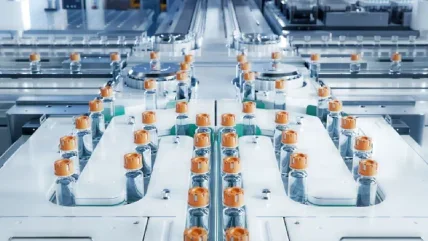
Pharmaceutical companies are reassessing their supply chains in response to US President Donald Trump’s tariff threats, as reported by Bloomberg.
According to the publication, this shift is creating opportunities for US-based contractors like Lonza Group, Thermo Fisher Scientific, and Catalent, which assist large pharma firms with various stages of drug production.
The healthcare sector is working to counteract the potential effects of tariffs, leading to intensified discussions between drug manufacturers and American contractors capable of rapidly scaling up production.
Even before Trump’s second term as President, the pharmaceutical industry was already moving more manufacturing operations to the US due to risks such as natural disasters and outbreaks like Covid-19.
The Biosecure Act also highlighted political risks by excluding certain Chinese companies from significant roles in drug development.
Trump’s administration has exacerbated supply chain concerns. In a meeting with executives from Pfizer and Eli Lilly & Co. (Lilly), Trump urged them to return manufacturing to the US or face tariffs. Following this, Lilly announced a $27bn investment in US-based production.
Although recent tariff announcements did not include pharmaceuticals, the industry is preparing for changes and actively engaging with contractors to transfer more manufacturing tasks to the US. Gil Roth from the Pharma & Biopharma Outsourcing Association confirmed to Bloomberg that pharmaceutical companies are accelerating these talks.
Parts of the supply chain are expected to remain outside the US because of dependencies on foreign sources for active pharmaceutical ingredients. Roth pointed out that much of these ingredients come from countries such as China and India.
In a related development, European pharmaceutical companies have expressed concerns to the European Commission President regarding the implications of US tariffs.
According to industry sources who spoke to Reuters, President Trump’s tariff policies could accelerate the industry’s pivot from Europe to the US.
The European Federation of Pharmaceutical Industries and Associations (EFPIA) has urged European Union (EU) President Ursula von der Leyen to implement “rapid and radical action” to counteract this potential shift.
The meeting, which included CEOs from EU-based pharmaceutical companies and representatives from EFPIA and biotech lobby Europabio, highlighted the need for changes to the EU’s regulatory framework. These changes aim to enhance innovation and strengthen intellectual property rights to prevent the migration of investment, research, and development activities away from Europe.






